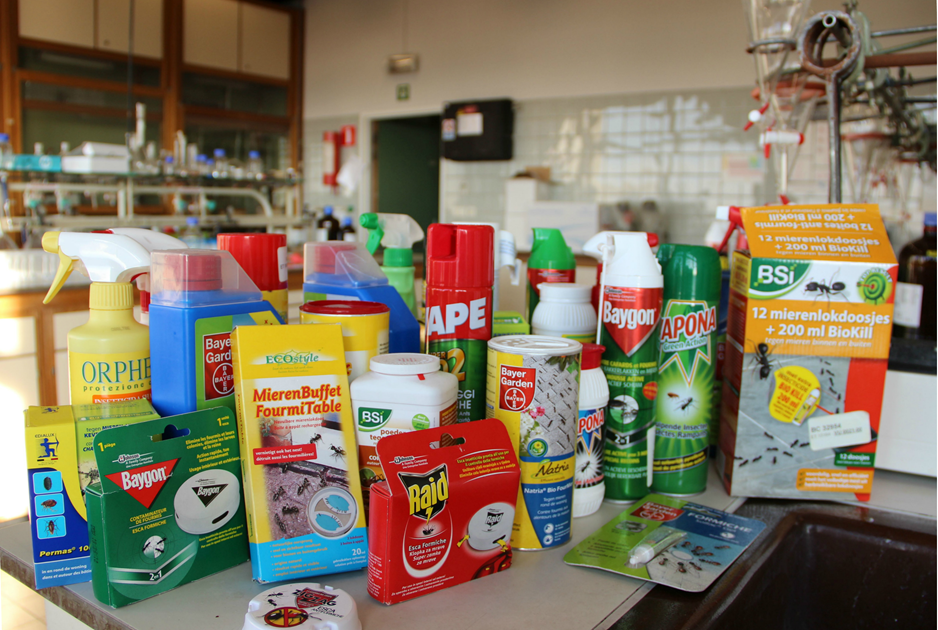Toxic Substances Like Pesticides or VOCs at 10,000 Times Lower Concentrations May Still Affect Individuals
Source: Thailand Medical News Nov 19, 2019 6 years, 3 months, 1 week, 6 days, 7 hours, 3 minutes ago
A new German study has unveiled some disturbing news. Toxic substances such as pesticides can cause health effects on sensitive individuals in concentrations up to ten thousand times lower than previously assumed. This was shown by researchers at the Helmholtz Centre for Environmental Research (UFZ) in a series of research studies.

UFZ ecotoxicologist Prof. Dr. Matthias Liess told
Thailand Medical News, “Whether a toxicant harms or kills an organism, and if so to which extent, depends on its concentration and the sensitivity of the individuals exposed: the dose makes the poison. But that's not all. Also, the magnitude of environmental stress is very important to determine the effect of a toxicant."
Toxicant concentration, individual sensitivity and environmental stress thus interact in a triad of effects. In their current study, the researchers have investigated the role of these individual components. They wanted to find out how sensitive individuals can be better protected by risk assessment and also safeguard their health and also protect themselves from any
medical complications in the future.
Prof. Dr. Matthias Liess further added, "Previous model calculations could not sufficiently predict the effects of low toxicant concentrations on sensitive individuals and species. But this is very important in both human and ecotoxicological risk assessment".
This is because sensitive persons such as children, sick or elderly people or more sensitive species of an ecosystem obviously suffer damage even at much lower concentrations than previously assumed.
"At extremely low pesticide concentrations far below concentrations that led to effects in previous studies - effects on sensitive organisms were observed," added Dr Liess.
These effects have hardly been observed since such low concentrations are very rarely tested. Previously, it was assumed that pollutants only elicit effects in high concentrations after a threshold value has been exceeded. However, at such extremely low concentrations this is obviously not the case. Liess said: "We observed these unexpected effects at very low concentrations in almost all existing studies in which effects of such concentrations of toxicants were investigated.
The researchers in their own investigations, exposed the crustacean Daphnia magna to very low concentrations of the pesticide esfenvalerate (used as an insecticide with contact and feeding action in plant protection products in fruit, vegetable and arable farming and is approved in the EU). The question that arises is: which process can induce effects in these low concentration ranges? The hypothesis of the UFZ scientists is that toxicant stress meets internal stress. But what does that mean?
Typically, under the influence of environmental stress such as predation pressure, parasites and heat organisms become more sensitive to toxicants and therefore can be affected, or die at much lower toxicant concentrations than in the absence of environmental stress. "We were already able to quantify this relationship in earlier studies," says Liess. "Additionally, we are now able to show that individuals develop internal stress when they are exposed to too little stress from the en
vironment. In fact, it seems like organisms are adapted to a certain degree of "external" stress. If it is missing, they develop "internal" stress. "And since external and internal stress add up, the sensitivity to toxicants increases drastically," explains Liess.
The conclusion: Sensitive individuals already react to extremely low concentrations of toxicants. These can be up to 10,000 times lower than the concentrations previously considered harmful so far. "Thus, too much but also too little stress increases sensitivity to pollutants," says the UFZ researcher. "Optimal with regard to resilience against toxicant exposure would therefore be some fluctuating environmental stress, which reduces internal stress.
In the study, in order to make effects visible at low concentrations, the scientists developed a model that enables a calculation of the internal stress and the resulting survival. Liess: "We hope that our study will contribute to a more realistic environmental and human risk assessment especially for sensitive individuals".
Reference: Liess et al. (2019) Predicting low-concentration effects of pesticides. Scientific Reports. DOI: https://doi.org/10.1038/s41598-019-51645-4 